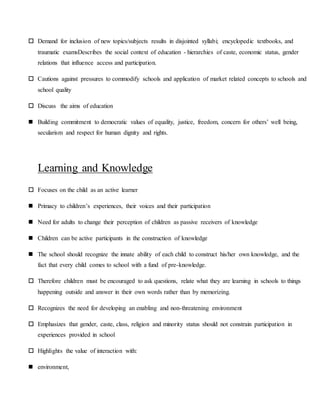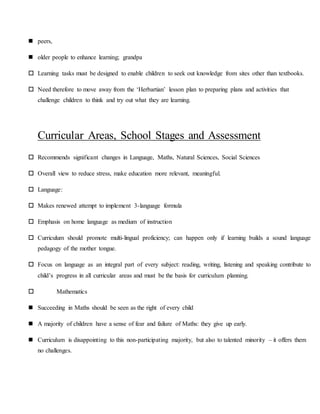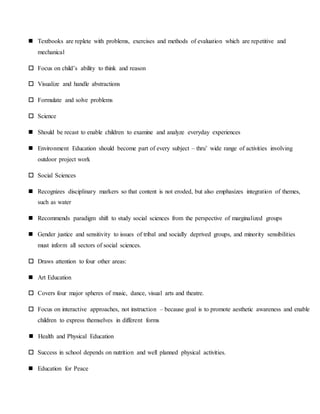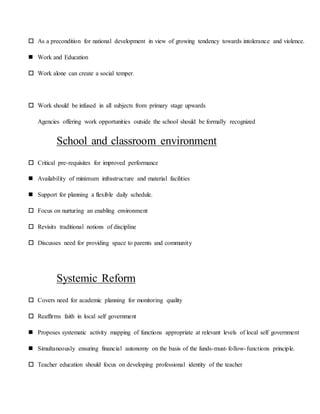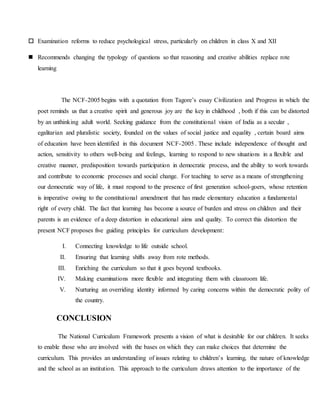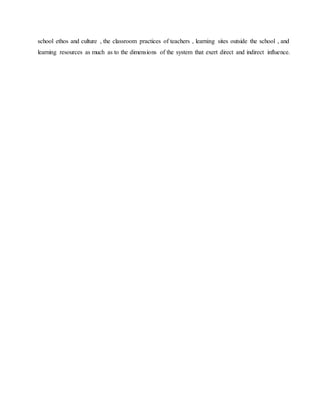The document discusses the National Curriculum Framework (NCF) 2005, outlining its historical background, objectives, and recommendations for improving education in India. It emphasizes the importance of child-centered learning and the need for reforms in curriculum, teaching methods, and assessment to reduce stress and promote meaningful education. Key features include a focus on active participation, multi-lingual proficiency, and the integration of various subjects while addressing social issues and fostering democratic values.
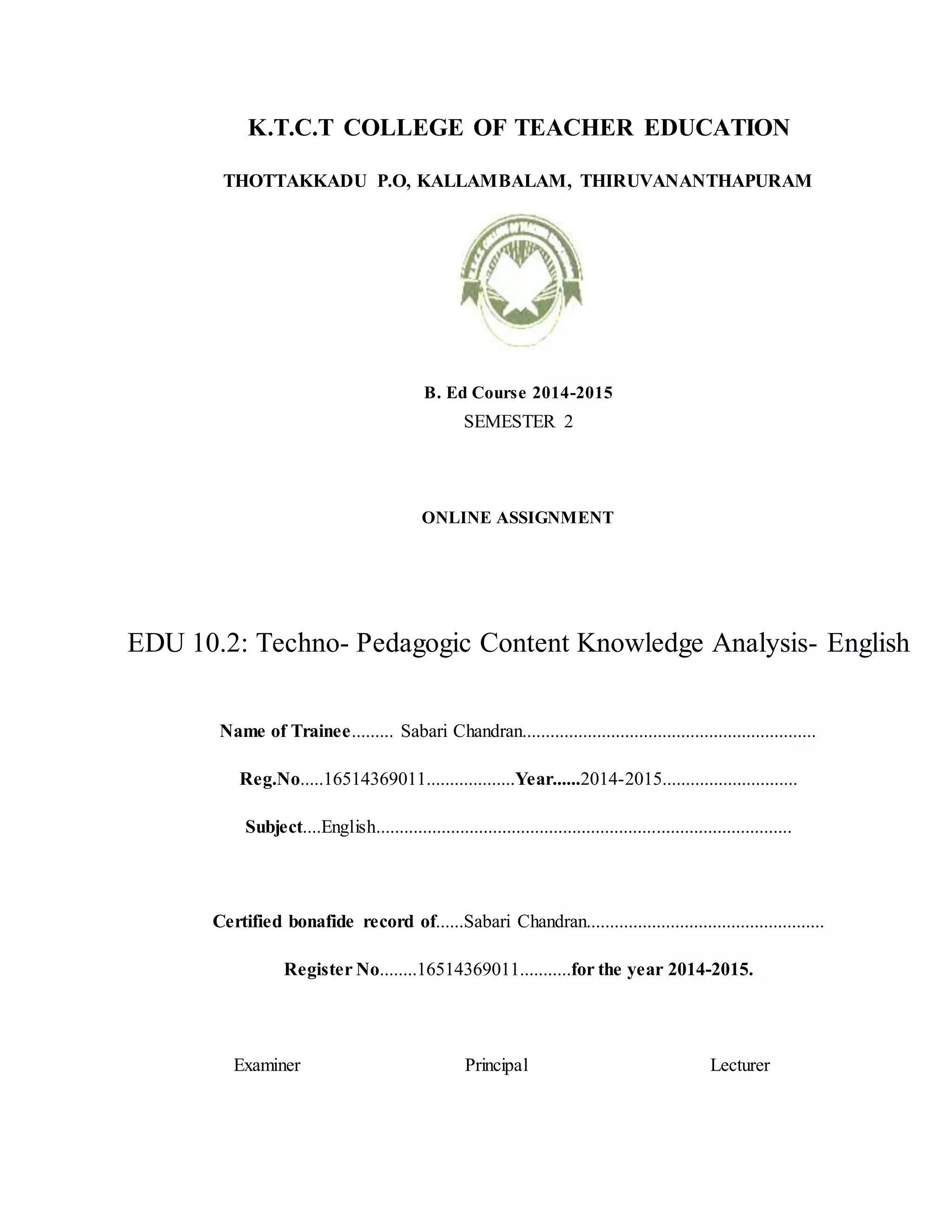
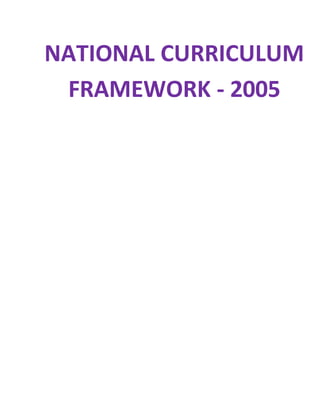
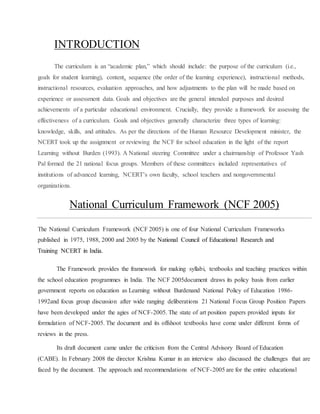
![system. A number of its recommendations, for example, focus on rural schools. The syllabus and textbooks
based on it are being used by all CBSEschools, but NCF-based material is also being used in many State
schools.
NCF 2005 has been translated into 22 languages and has influenced the syllabii in 17 States. The
NCERT gave a grant of Rs.10 lakh to each State to promote NCF in the language of the State and to
compare its current syllabus with the syllabus proposed, so that a plan for future reforms could be made.
Several States have taken up this challenge. This exercise is being carried out with the involvement of State
Councils for Educational Research and Training [SCERT] and District Institutes of Education and Training
[DIET]
Main Features of the NCF 2005
The document is divided into 5 areas
Perspective of NCF
Learning and Knowledge
Curriculum Areas, School Stages and Assessment
School and Classroom Environment
Systemic Reforms
Perspectives of NCF
1. Provides the historical backdrop; recalls NPE statement on curricular framework NPE
2. Revolves around the question of curriculum load on children
a. Information often confused for knowledge.
b. Tendency to teach everything arises from our lack of faith in children’s creative instincts.](https://image.slidesharecdn.com/nationalcurriculumframework1-151025183101-lva1-app6892/85/Online-Assignment-National-curriculum-framework-4-320.jpg)
